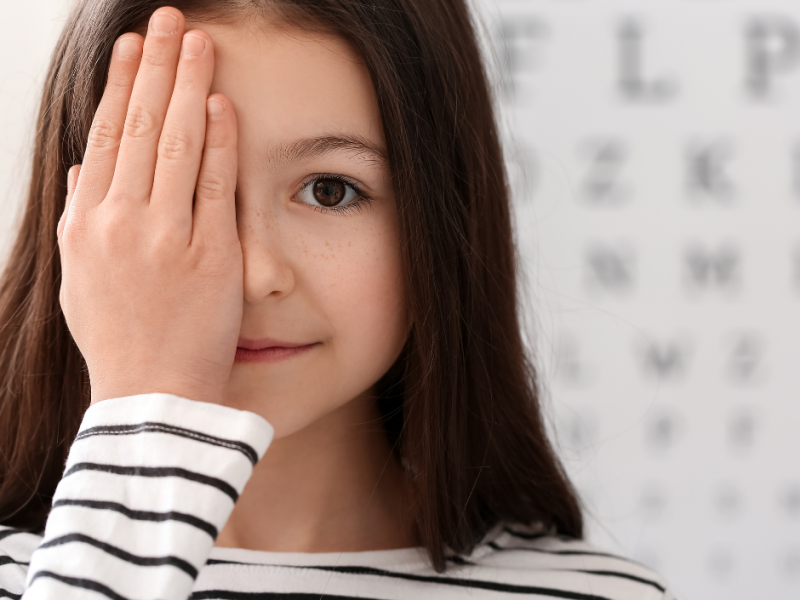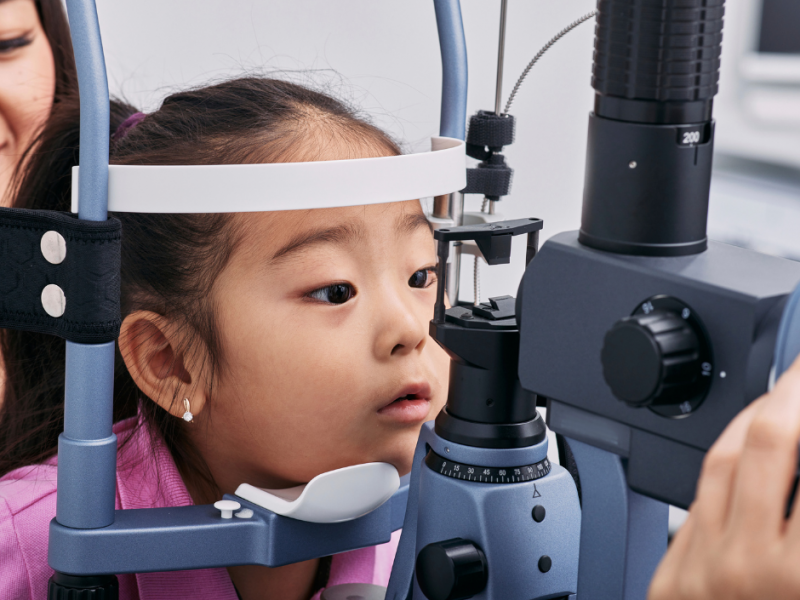Vision Screenings for Children: Why Early Detection Matters
Good vision is essential for a child’s development, playing a critical role in learning, social interactions, and overall well-being. From recognizing faces and reading books to participating in classroom activities and playing with friends, vision impacts nearly every aspect of a child’s daily life. However, children often don’t realize when something is wrong with their eyesight—they may assume what they see is normal, or struggle quietly without knowing how to express what they’re experiencing.

Why Are Vision Screenings Important?
Children’s eyes are constantly developing, and early detection of vision problems can prevent long-term complications. Vision screenings are designed to:
- Identify vision issues like nearsightedness, farsightedness, or astigmatism.
- Detect signs of more serious conditions such as amblyopia (lazy eye) or strabismus (crossed eyes).
- Provide an opportunity for early intervention, improving a child’s quality of life and academic performance.
Signs Your Child May Have Vision Problems
Kids may not always communicate vision issues clearly, but certain behaviors can indicate a problem. Watch for:
- Frequent squinting or tilting of the head.
- Holding books or devices very close to their face.
- Complaints of headaches or tired eyes.
- Difficulty concentrating on tasks or avoiding reading altogether.
- Misaligned or wandering eyes.
If you notice any of these signs, it’s time to schedule a vision screening.
When Should Children Have Vision Screenings?
Experts recommend vision screenings at key developmental milestones:
- Infants and Toddlers (6–12 months): An initial screening to check for eye alignment and general eye health.
- Preschool Age (3–5 years): Screenings can identify early issues like lazy eye or focusing problems.
- School Age (6+ years): Annual screenings ensure clear vision as children grow and their academic demands increase.

How Vision Screenings Help in Early Detection
Vision screenings are a simple, non-invasive way to spot potential eye problems in both children and adults. By checking visual sharpness, eye alignment, and how the eyes work together, these quick assessments can uncover early signs of concern—often before a child even notices symptoms. When done in early childhood, screenings can play a critical role in supporting healthy development, learning, and overall quality of life.
Some pediatric eye conditions that benefit from early detection include:
The Role of Research in Pediatric Vision Care
Ongoing research is advancing our understanding of pediatric eye health and improving diagnostic tools and treatments. From innovative therapies for amblyopia to early interventions for progressive myopia, clinical trials are helping to shape the future of vision care for children. Some treatments or over the counter drugs can’t be recommended for children until the proper research is conducted. Participating in trials can help bring new and already available treatments to children.
Establishing a habit of vision screenings in early childhood is a powerful step toward lifelong eye health.
If your child—or a child of someone you know—has a diagnosed eye condition and you’re interested in learning whether a clinical research study may be available, feel free to reach out.
How You Can Get Involved
Clinical trials play a critical role in advancing pediatric vision care. By participating, families can contribute to research that helps children see a brighter future. At Ora, we’re committed to developing innovative solutions for childhood eye conditions. Learn more about our pediatric studies and how your family can help make a difference.
Want to Stay Informed About the Latest Blog Posts?
Sign up for updates and never miss a post! We’re excited to share more insights on eye health. Our next blog post will be released on the first Monday of every month.